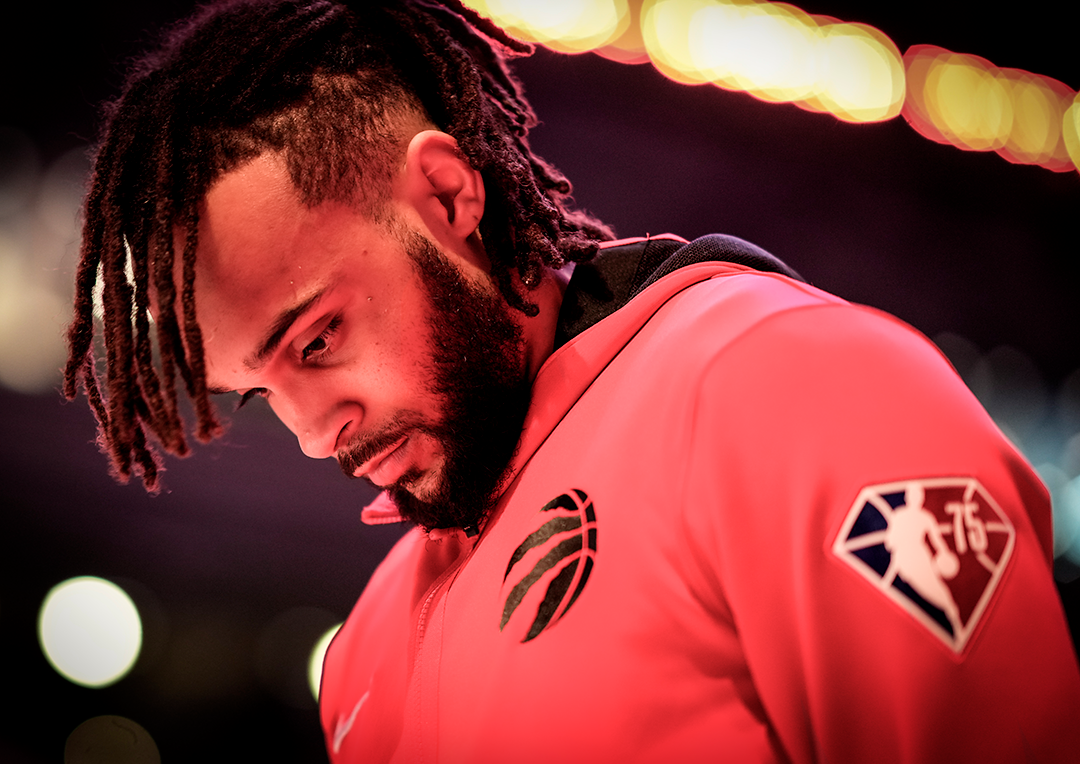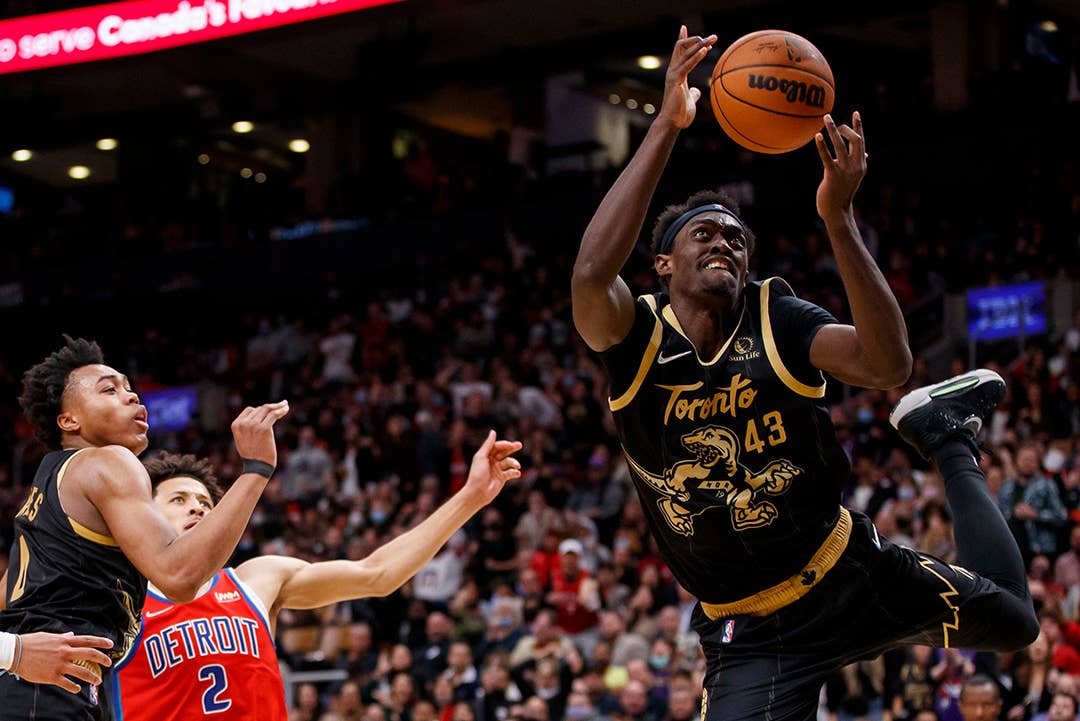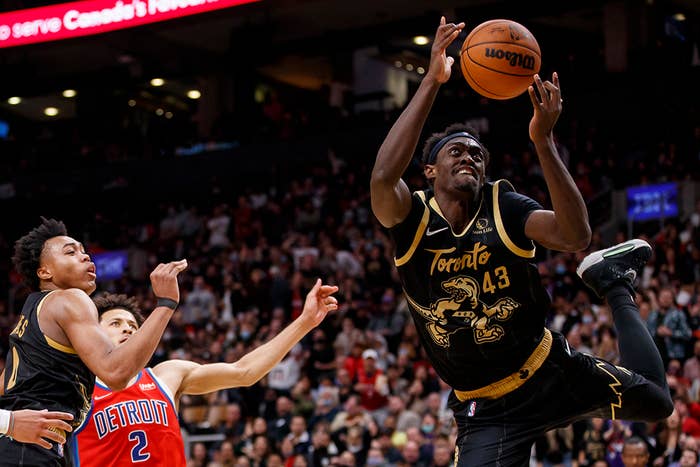
Anyone that tells you they know what’s going on with the Toronto Raptors this season—or with the NBA in general, for that matter—is lying.
Thanks to a COVID outbreak midway through December and injuries to key players sprinkled throughout, the Raptors have rarely been whole during their 2021-22 run, with Sunday’s win over the New York Knicks marking just the fourth time all season in which Fred VanVleet, Pascal Siakam, OG Anunoby, and Scottie Barnes all played and the first with their top-eight rotation players (in terms of minutes per game) available.
Almost halfway through the season and the Toronto Raptors are 16-17 with the 10th best record in a very competitive the Eastern Conference, with only 3.0 games separating them and the No. 5 seed. The Raptors are 9-10 at home, 7-7 on the road, and 6-4 over their last 10 games, with the 13th best offence and 21st best defence in the league, with a net rating of +0.2.
With the new playoff format that came into effect last season, the top 10 teams in each conference will get a chance to make the playoffs, with a play-in tournament featuring the 7-10 seeds taking place between April 12-15, where two teams will advance to the playoffs.
With the obvious caveat being health and COVID—especially when it comes to Fred VanVleet, who has been the most consistent Raptor this season and is the only reliable point guard on the roster—the Raptors are good enough to continue fighting for a playoff berth, assuming the NBA is still functioning by then. If the Raptors get there, this season should be considered a success, especially given how young and inexperienced the roster is and how deep the conference has become. But it won’t be easy.
Here are the three biggest things that the Raptors need to do in order to make the playoffs this season.
Defensive Identity
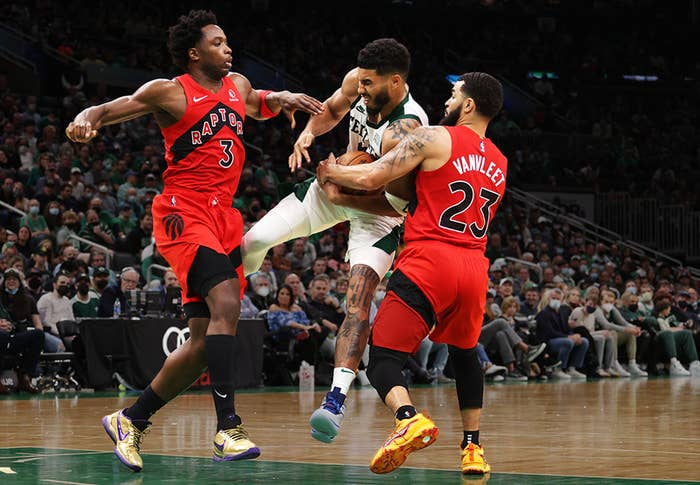
Defence wins championships. That was certainly the case for the Raptors in their championship season, when they had the fifth best defence in the league. And it’s certainly the end of the floor that head coach Nick Nurse and the front office have prioritized over the last few years, targeting big, long, and athletic players who can cover a lot of ground and are known for their defensive prowess; ones who will only see the floor if they can execute Nurse’s defensive schemes. In fact, while the Raptors are the first team since at least 2014-15 to not have a player 6-foot-10 or taller on their roster, they are not small by any means, with an average size of 6-foot-6.7 and 209.5 pounds, including six players with a wingspan of 7 feet or greater.
Their length and athleticism should allow the Raptors to suffocate teams on the defensive end, but the Raptors defence has been up and down this season due to a combination of inexperience leading to mistakes and COVID and injuries messing with their rotation and chemistry. Fortunately, when healthy, the Raptors are significantly better than their 21st ranked defence would say, and they are trending in the right direction, with their new starting lineup of VanVleet-Trent-Anunoby-Barnes-Siakam allowing just 97.3 points per 100 possessions, which ranks in the 85th percentile in the league.
“It’s part of the roller coaster we’re riding this year a little bit, pretty drastically, right? Big ups, and big downs, and big ups,” Nurse said about the Raptors defence. “I think that the guys have worked really hard. We’ve zeroed in on continuing to practice fundamental, foundational, daily defensive developmental drills, and we’re seeing some results of that.”
What the Raptors do extremely well on defense is aggressively hound the ball for deflections and steals, leading the league in deflections with 18.7 and placing third in steals with 9.1 per game. In fact, VanVleet (3.8), Gary Trent Jr. (3.6), OG Anunoby (3.4), and Scottie Barnes (2.8) all rank within the top-20 in the league in deflections per game. The Raptors play that aggressive style in part to force a ton of turnovers (on 17.5 percent of opponent possessions) that fuel a transition offence that scores an average of 23.1 points per game, third most in the league.
However, where the Raptors struggle defensively is on the glass, where the Raptors defensive rebounding percentage of 70.1 ranks third last in the league, and opponents are scoring 15.0 second-chance points per game after offensive rebounds. Plus, because the Raptors don’t have a traditional rim protector to contest shots at the rim, they play a more aggressive style that demands all of their players pinch into the paint and collectively cut off drives to the rim, which leads to more fouls (opponents are scoring 20.6 free throws per 100 possessions, which ranks in the 22nd percentile) and more corner threes (12.6 percent of opponents shots are coming from the corners, 28th percentile).
These are legitimate concerns, but it seems as though the Raptors defensive chemistry has been improving as of late and, now that they are relatively healthy, a lot of these concerns should naturally dissipate.
Bench Depth
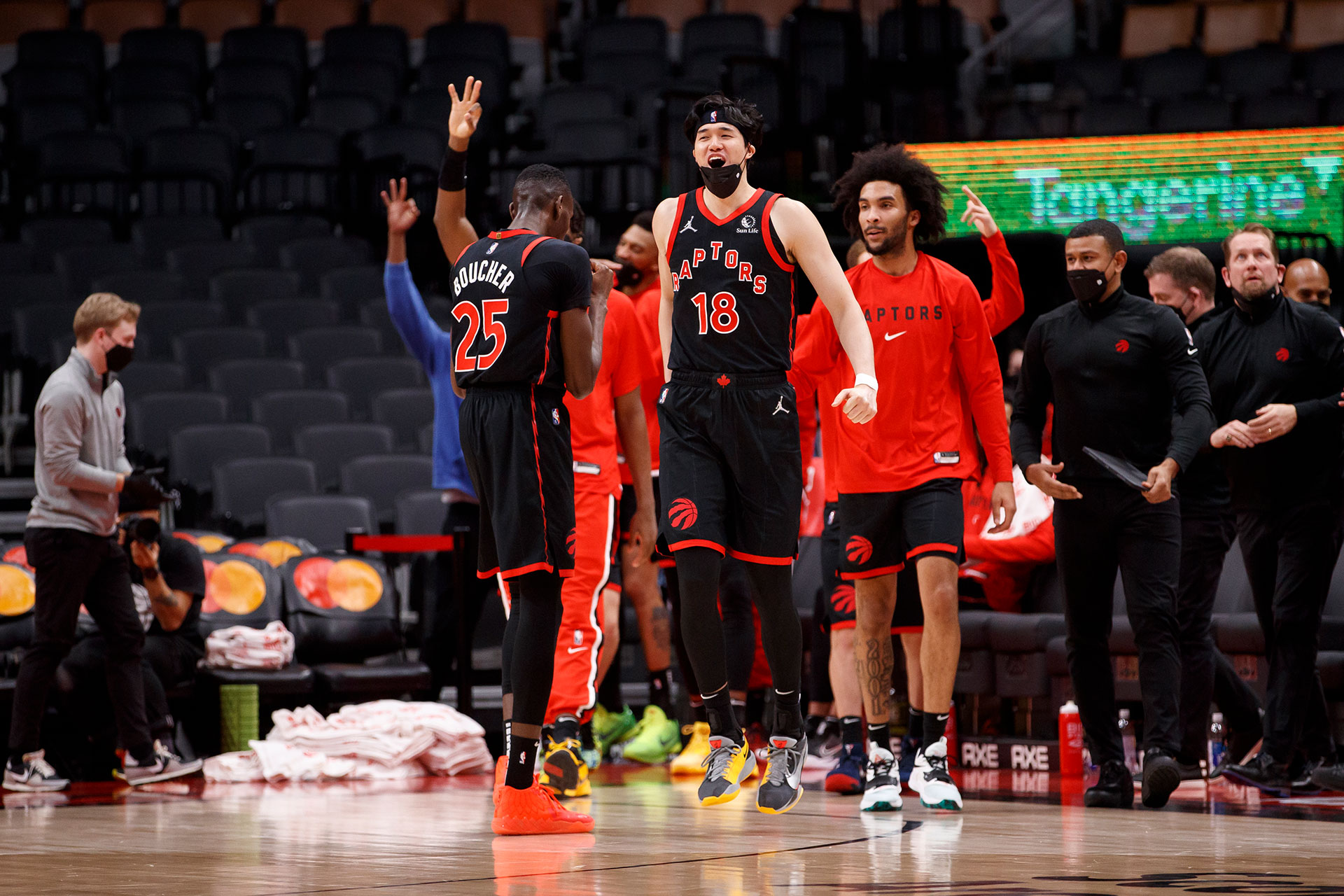
Clutch Time
